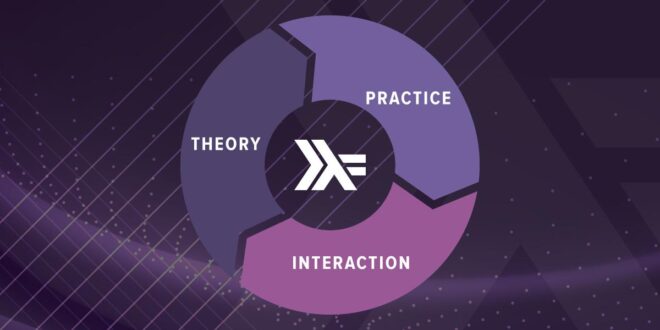The infrastructure of algorithmic languages is constantly evolving, and as a result, there are more and more of them. Each of them is unique in its way, but the uniqueness of the language Haskell can only be envied. Learning this functional language is like taking the first step into the programming industry as a whole. That is especially true for people who have not programmed in functional languages before but only used imperative languages.
In this article, we will break down the pros and cons. All the subtleties, as well as the right approach to learning, for the fastest results. You will be able to see some of the most prominent Haskell features and also a quite introduction to it and where to start from. This can be quite useful for those of you who are using Haskell for the first time.
Some Haskell Features

Haskell is a lazy language. How do you understand this? Haskell simply will not perform functions, or execute the computational calculations, until you force it to show you results. But this option can be used as a strong plus, it allows you to work with an unlimited set of data, and the calculation of several initial figures in the row will not cost you a century. Haskell can do it. However, not everyone was so keen on this type of feature. Some criticism emerged. According to the critics, “lazy evaluation makes it more difficult for programmers to reason about the performance of their code” but they acknowledged the motivation behind it.
This language has static typing. That is, when you compile the code you’ve written, you can find new errors because the compiler knows what a string is, what a number is, and so on. So the compiler stops you from trying to add a string to a number. In addition to that, Haskell may not be the best choice for beginner programmers. It has a subtle language and syntax and sophisticated system overall. That is, of course a good thing, but when you are a beginner, you can find this to be an issue. Experienced programmers, on the other hand, love working in Haskell and it can be quite useful, especially if you know what you are doing. In fact, it has created a growing fanbase and users, and most of them are programmers who work for years.
Haskell can be called an optimized language because of its functionality. As a result, programs written in it are smaller, and as we all know, such a product is much easier to review and maintain. This functional programming language was created by very intelligent programmers. The Haskell language was born already in 1987, but the final check had only been rolled out by 2003.
So where to start?

All you need is a text editor and a Haskell compiler. For a simpler explanation, we will use the GHC editor as it can take our script and compile it. And a big plus is the interactive mode, which allows you to act more precisely and meticulously. A bonus will be calling functions, from the scripts you download, this is the most convenient position for learning. I would also like to recommend Literature, which is suitable for starting. For example – “Learn You a Haskell for Great Good”, this book is worth diving into a new world! At the start, you can read a book by Thompson, which is a lot of water, but still emphasize – Haskell: the Craft of Functional Programming.
Unrealistic outlook

What skills will this language impart to you? At least a broad understanding of functional languages. But I want to evaluate the prospects of this language for the younger generation. Because in today’s reality, you need to allocate your time and spend it to the best of your ability. Therefore:
- Used in web development.
- Different types of modeling (financial, biotechnical, scientific)
- Blockchain, which is a sought-after option these days.
- Parallel programming and compilers
There is a lot more to list. We hope that you got the gist of it, This language is as relevant as possible to modern tasks and will be in demand for many years to come.
Where it is currently in use

Large niche occupied by Haskell, these banks, and everything related to finance. Not bad, right? Haskell is used to creating your tools, universal models, and cause of the guaranteed accuracy of the calculations. It is needed to write programs for text processing, parsing. A wide range of applications is code testing in other programming languages. Haskell is very well in this case. Some of the cases about Haskell in production I’ve read here.
Conclusion
This language can be called revolutionary, which is unusual. But the future belongs to this kind of thing, functional programming languages. Based on this article, it is safe to say. While learning the language, you will raise your programmer intelligence to a new level. Haskell is changing and evolving quite rapidly, which speaks to its high productivity, as a working tool for you. If you really want to get your skills up to speed or if you’re already familiar with the language, it’s worth thumbing through books like Richard Bird: Thinking Functionally With Haskell. It’s very math-oriented and will suit all lovers of the field. And Christopher Allen and Julie Moronuki, Haskell programming from first principles, a book that has received a lot of positive feedback from the audience, which speaks for itself. Try your best, learn and get better. Good luck.
 Hi Boox Popular Magazine 2024
Hi Boox Popular Magazine 2024



